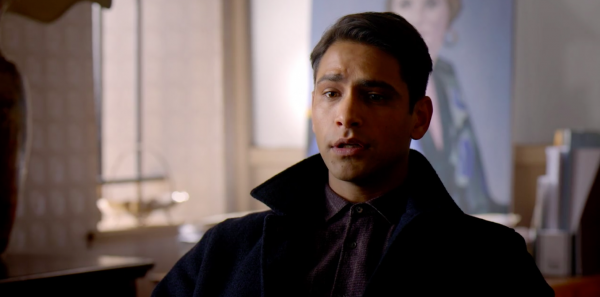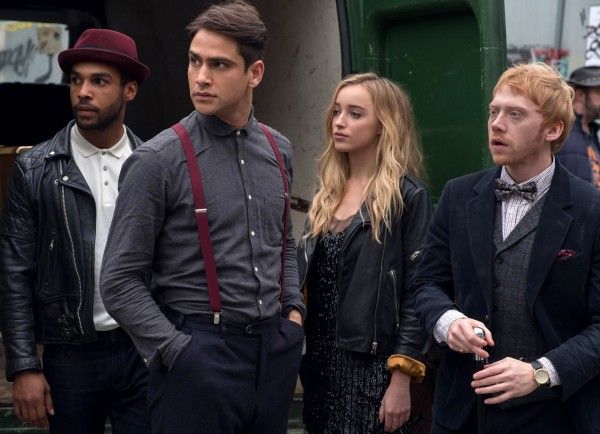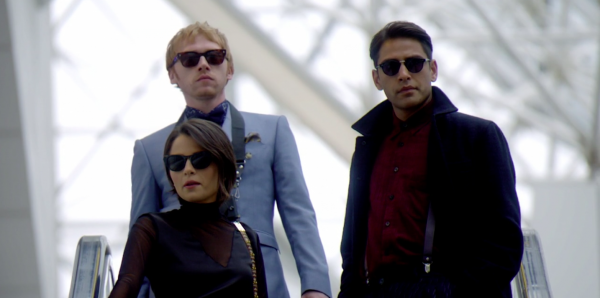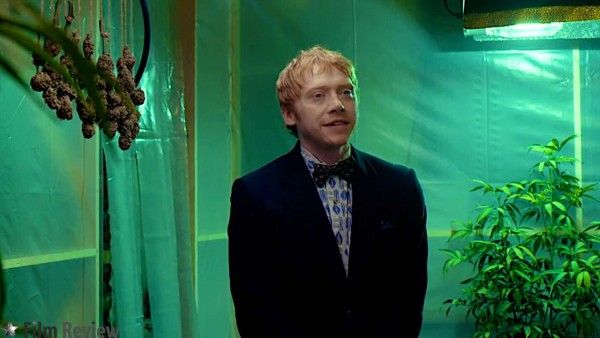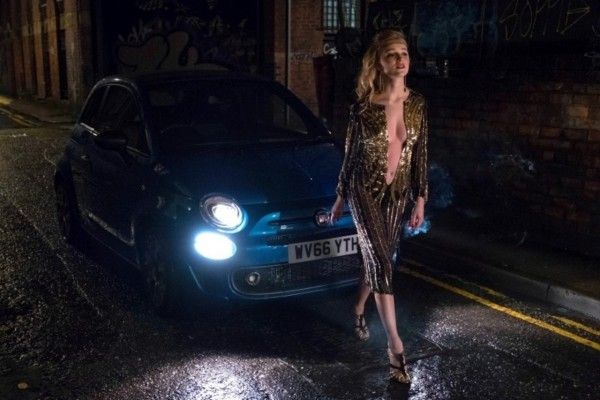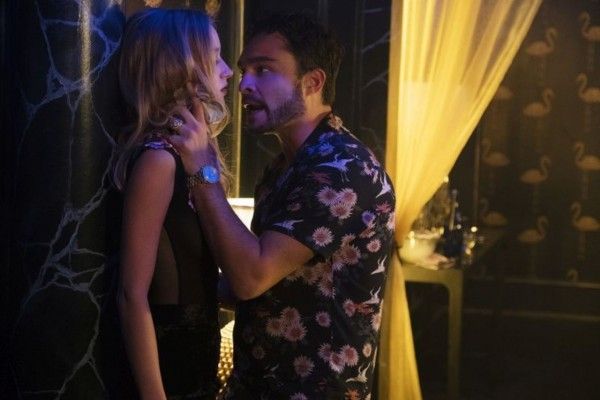What do you remember about Guy Ritchie's Snatch? If you were in high school around the turn of the millennium, there's a decent chance you saw Ritchie's ecstatically entertaining crime caper or, at the very least, had seen a scene or two when your best friend or girlfriend rented the title from Blockbuster. It's a movie that's weirdly of a very specific post-Tarantino time, marked by extensive, eruptive stretches of pop-culture-referencing dialogue and wildly imaginative bits of violence. As Tarantino turned toward his ultimate masterwork, Jackie Brown, Ritchie and a cadre of other directors picked up the riotous tone and rhythmic pacing of Pulp Fiction, building careers that have lasted on to this day.
For me, what made Snatch so unique in a sea of largely insufferable Tarantino and Kevin Smith clones was its sense of personality, its use of distinct character actors, each with his or her's own set of physical gestures and deliveries, to create the feeling of a real community. A community at constant war with itself but a community nonetheless. Benicio Del Toro, Dennis Farina, Brad Pitt, Lennie James, Jason Statham, Vinnie Jones, and a host of other performers evenly blended their own personalities with those of Ritchie's ruffians, rendering even the short-lived Frankie Four Fingers memorable and even illuminating.
If that sense of character is meant to be in the TV series of the same name, which debuts today on Crackle, it's certainly not evident within the first two episodes that were screened for critics. Instead, the new Snatch is a textbook example of how to render a fun, rollicking, and dark movie into an egregiously safe bore of a television series, led by a young cast who drink, smoke pot, have sex, and occasionally shoot guns but rarely feel the consequences of any of their "risqué" activities. It's a show about playboys pretending to be criminals and the desperate strain to make their bad-boy bonafides seem convincing is felt in nearly every shot of the first two episodes.
Where Statham's sardonic Turkish led the movie, the series is led by Luke Pasqualino's Albert Hill, the son of a respected criminal kingpin (Dougray Scott) whom he often communicates with through FaceTime. The opening sequence, which details Scott's character getting arrested when Albert was a child, sets up the familiar thematic element of the limitations of father-son bonds and Pasqualino's character barely makes an action that isn't tied directly to that. At Albert's side is Rupert Grint's Charlie Cavendish, a privileged Londoner who enjoys playing criminal by selling crap booze, robbing people and institutions, and pawning his parents' wears. As written, he's also defined almost entirely by his relationship to his parents and the posh-ish life they gave to him.
The script for the pilot episode is, in a sense, a rejiggered take on the plot of the movie, with Albert and Charlie putting all of their savings on a bet on Billy Ayers (Lucien Laviscount), a hard-fighting boxer who they have been backing for some time. Things, as you just might have guessed, don't go entirely to plan on that one. There's also the introduction of Stephanie Leonidas' Chloe, a pawn-shop hustler, and Phoebe Dynevor's Lotti, the testy girlfriend of another local crime boss (Ed Westwick), as love interests for our two heroes. Everything is so clearly telegraphed, from the jokes to the backstory to the narrative clock, that there's nothing compelling or intriguing to get involved with outside of the performers, of whom only Grint and Leonidas reveal brief glances at their characters' interior lives.
Though I'm not often one to make this argument, Snatch does suffer noticeably from Pretty People Syndrome. The entire cast could just as easily be entertaining a modeling career - some of them already are - and the fact that most of these performers look as if they should be on a runway makes them feel out of place on the "hard" streets of London. The acting is largely endurable but there's no variety, no feeling of these actors actually trying to evince a thoughtful persona from what's been handed to them. The writing is the premiere issue but there's rarely any sign of the performers putting effort into giving shape or tone to those words.
It's one thing to make a world of robbers, crooks, and murderers look like a Calvin Klein ad, but the fact that Snatch isn't even particularly interested in the criminal mind is what ultimately sinks the whole enterprise. There's no sense of Albert's thought process in going into the crime world and how it helps or at least funds his larger ambitions. Even when his family's business is in trouble or his mother is threatened with rape, Albert's actions don't feel urgent or grave; there's never any sense that anything in his world is out of his or his father's control. The technical team, for their part, use a few zoom-ins, push-ins, and tracking shots to give some pinches of excitement but the tactics ultimately come off as a ploy rather than an instinctual decision, a way to grab attention when the writing is particularly innocuous. It's all indicative of a series that wants to be risky but doesn't want to ruffle any feathers and is more than happy to utilize name recognition from the original film to sell a cheap knock-off.
Rating:★ - A Waste of Time & Money
Snatch is currently streaming on Crackle.


